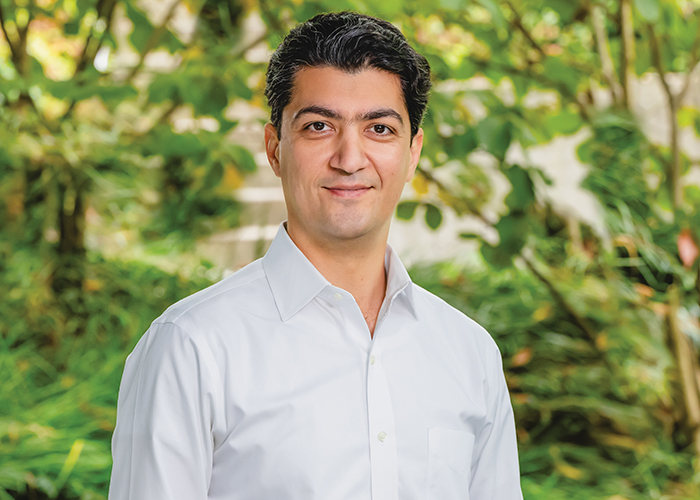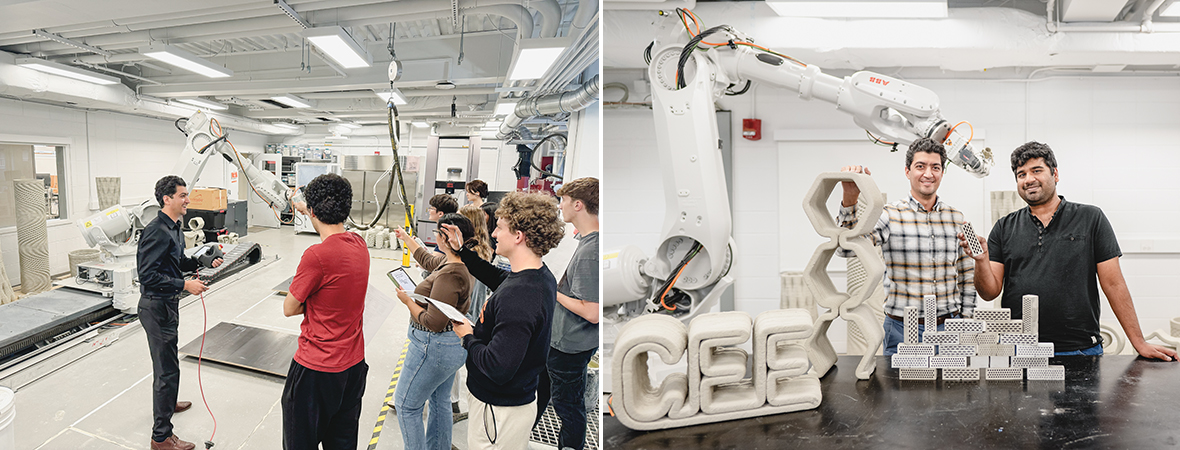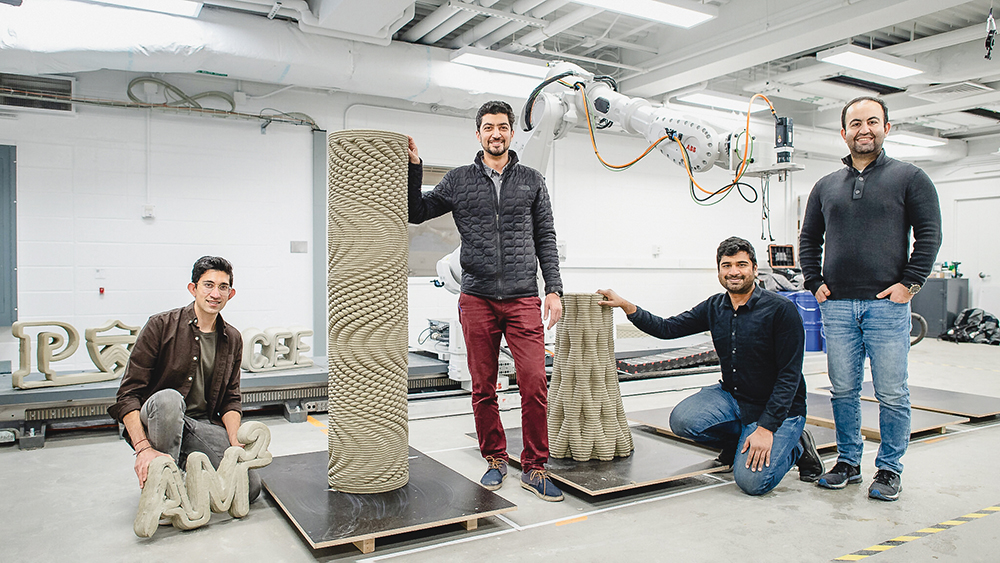Mind Over Materials
Mind Over Materials

Reza Moini blends research, teaching and impact
In the constantly evolving field of engineering, the role of researchers and educators is pivotal in shaping the future of structural materials. One such individual making significant contributions is Reza Moini (PhD ’20) whose commitment to training the next generation and advancing scientific understanding in structural materials is both inspiring and impactful.
Moini is a research scientist passionate about training future generations in structural materials — particularly concrete — through a scientific approach to engineering research. With a background in civil and structural engineering, his current work focuses on the intersection of advanced engineering materials and robotics. Originally from Iran, Moini grew up in a nurturing middle-class family that significantly influenced his intellectual development. Inspired by his mother’s open and liberal discussions about human beings and society and his father’s perspective on determination and perseverance, he developed a broad perspective about life. Learning from his highly educated siblings, who became professors, teachers, doctors and lawyers, Moini cultivated an early curiosity for knowledge and exploration.
With a primary interest in the sciences, particularly physics, Moini found civil engineering to be an area where he could apply his passion in applied physics. He was drawn to the vast potential for designing materials and structures at various scales. Purdue was a top choice for him due to its successful engineering materials program, which has produced many leading academics and professionals. During his time there, he was offered a PhD research position by Professors Jan Olek, Jeffrey Youngblood and Pablo Zavattieri, making him one of only two students at Purdue to have three advisors.
Moini says his experience at Purdue was transformative, thanks to dedicated faculty who provided exceptional mentoring. His time at Purdue, coupled with a focus on engineering cement-based materials through 3D printing, shaped his academic vision.
After graduating, he became an assistant professor in civil and environmental engineering at Princeton University where he established a laboratory for architected materials and robotics. His research addresses key questions regarding the design of heterogeneous materials and additively manufactured structures. At Princeton, he developed the course “CEE 374: Autonomous Fabrication and Robotics” to prepare students for modern concrete design using autonomous systems. With research funded by various agencies, he has received numerous grants and accolades.

Photos of Moini Lab, CEE Department, Princeton University

Moini’s journey in engineering began with internships during his undergraduate studies in Iran, leading to design and construction roles in the concrete industry. After earning a master’s from the University of Wisconsin-Milwaukee and contributing to the development of more sustainable concrete for Wisconsin DOT, he worked at Collins Engineers focusing on structural design in the U.S. bridge and transportation infrastructure. This diverse background laid the foundation for a successful career in research and academia.
Moini is affiliated with several prominent initiatives in Princeton, including the Princeton Materials Institute, Princeton Robotics and the Princeton Institute for Computational Science and Engineering. In his role, Moini conducts fundamental research in mechanics and robotics, mentors students at various academic levels, teaches essential topics in structural and material engineering, and contributes to departmental and university committees.
“What endures beyond our careers are not just the papers, theses and dissertations contributions, but the people we train who can train others and advance our field further,” Moini said.
He takes pride in the opportunity to instill scientific perspectives in PhD and undergraduate students, guiding them in objective inquiry and promoting critical and creative thinking. Furthermore, he emphasizes the importance of developing both hard and soft skills among his students, encouraging them to clearly communicate the significance of their work. Through his mentoring, he aims to cultivate a generation of researchers who are equipped to make meaningful contributions to their communities.
“It is important that we instill confidence in the next generation to change the world for better,” Moini said. “Trust in your means and your goals is crucial; only then can you inspire confidence in your mentee.”
